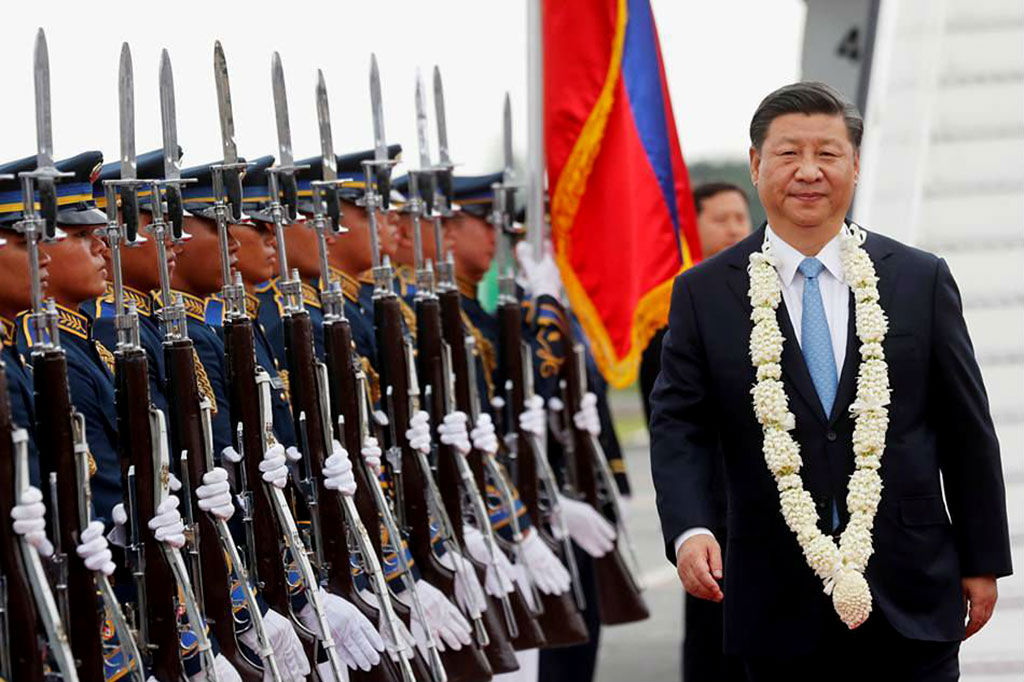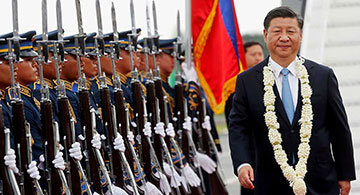Recently, a news report said that the Philippines and state-owned China International Telecommunications and Construction Corp. (CITCC) entered into a loan agreement to fund the installation of a vast network of security cameras. The P20-billion deal would initially install the security cameras in Metro Manila and Davao.
This agreement was one of the 29 agreements that were signed during Chinese President Xi Jinping’s state visit last November 2018. Reportedly, an initial 12,000 closed-circuit television (CCTV) cameras – also known as video surveillance — will be installed in 30 months. They’ll be located at crossings, roads, public squares, business districts, science and technology parks, residential areas and stadiums, among others. Chinese nationals will install and maintain the CCTV cameras.

According to a CITCC briefer, the project’s ultimate outcome is a “Safe Philippines” that would guarantee the citizens’ good living and social economic stability for growth. It also said, “It aims to reduce crime by at least 15 percent and improve response time by 24 percent.” The system includes a national command center with backup data center to be located in Clark, Pampanga with facial and vehicle recognition software. It will also be linked to disaster response agencies in all regions once the entire project is in place.
Big Brother
This reminds me of “Big Brother,” a fictional character in George Orwell’s novel “Nineteen Eighty-Four.” He is ostensibly the leader of Oceania, a totalitarian state wherein the ruling party Ingsoc wields total power “for its own sake” over the inhabitants. In the society that Orwell described, every citizen is under constant surveillance by the authorities, mainly by “telescreens” (devices that operate as television, security camera, and microphones). It keeps its subjects under constant surveillance, thus eliminating the chance of secret conspiracies against Oceania. The people are constantly reminded of this by the slogan “Big Brother is watching you”: a maxim that is ubiquitously on display. In modern culture, the term “Big Brother” has entered the lexicon as a synonym for abuse of government power, particularly in respect to civil liberties, often specifically related to mass surveillance. [Source: Wikipedia]
Orwell published the Nineteen Eighty -Four novel in 1949 as a warning against totalitarianism. It was at a time when communism and dictators used surveillance methods to keep the people under control. The Soviet Union and her satellite states were in a constant state paranoia. Fearful of conspiracies against the dictators, they used “secret police” to monitor their citizens’ activities. In the Soviet Union, Stalin put to death 20 million people. In China, Mao Zedong’s Great Leap Forward killed 45 million in four years – from 1958 to 1962.
The earliest video surveillance systems involved constant monitoring because there was no way to record and store information. VCR technology became available in the 1970s, making it easier to record and erase information. Use of video surveillance became more common then. In the 1990s, digital multiplexing digital was developed, allowing several cameras to record at once, which led to an increase in the use of CCTV.
Today, CCTVs are now in use in many large cities, such as Washington DC, New York, London, Moscow, and Beijing. There are more than 350 million CCTV cameras worldwide of which about 65% are installed in Asia. With facial and vehicle recognition technology, it makes the system a very powerful method of tracking movements of people and vehicles.
CCTV disadvantages
While there are advantages in the use of CCTV, there are disadvantages as well. It can be abused. CCTV can be used to monitor political activities, anti-government activities, and “people of interest.”
And it is for this reason that Senate President Pro Tempore Ralph Recto had raised alarm over the contract and pushed that it be removed from the budget or at least put on hold until it is thoroughly reviewed. “Don’t you think there is a security threat when China telecoms and Huawei will do surveillance system in Metro Manila?” Recto reportedly asked officials of the Department of the Interior and Local Government (DILG) during the agency’s recent budget hearing at the Senate.
It’s interesting to note that the project was bidded out, with two other state-owned Chinese firms participating: China Machinery Engineering Corp. and a consortium of Huawei Technologies and some local firms. China Machinery Engineering Corp. did not qualify and the consortium failed to submit documents.
Also of interest is Huawei that is blacklisted in many countries, including the U.S. One of Huawei’s top officials was recently arrested in Canada at the behest of the U.S. on national security charges.
Since CITCC is state-owned, the contract is between the Philippine and Chinese governments. This is also true with Huawei and ZTE. Recently, Australia banned them from providing 5G technologies. The reasons given were national security concerns. The U.S. and U.K. intelligence communities have both raised fears about doing business with Huawei and ZTE.
In the final analysis, the fact that CITCC is state-owned – and state-controlled – is it fair to presume that China’s government or the Communist Party apparatus could or would use the CCTV to monitor the political situation in the Philippines? Which reminds me when Xi Jinping promised to protect Duterte from any plan to remove him from office.
In particular, China could use the CCTV to gather information to exert political, military, and economic pressure to protect China’s interests in the Philippines, particularly the West Philippine Sea territorial disputes. What does it take to link the CCTV’s in Metro Manila and Davao to the China’s intelligence agencies?
At the end of the day, the question that eerily lingers in most people’s mind is: “Is Big Brother Xi watching us?”


